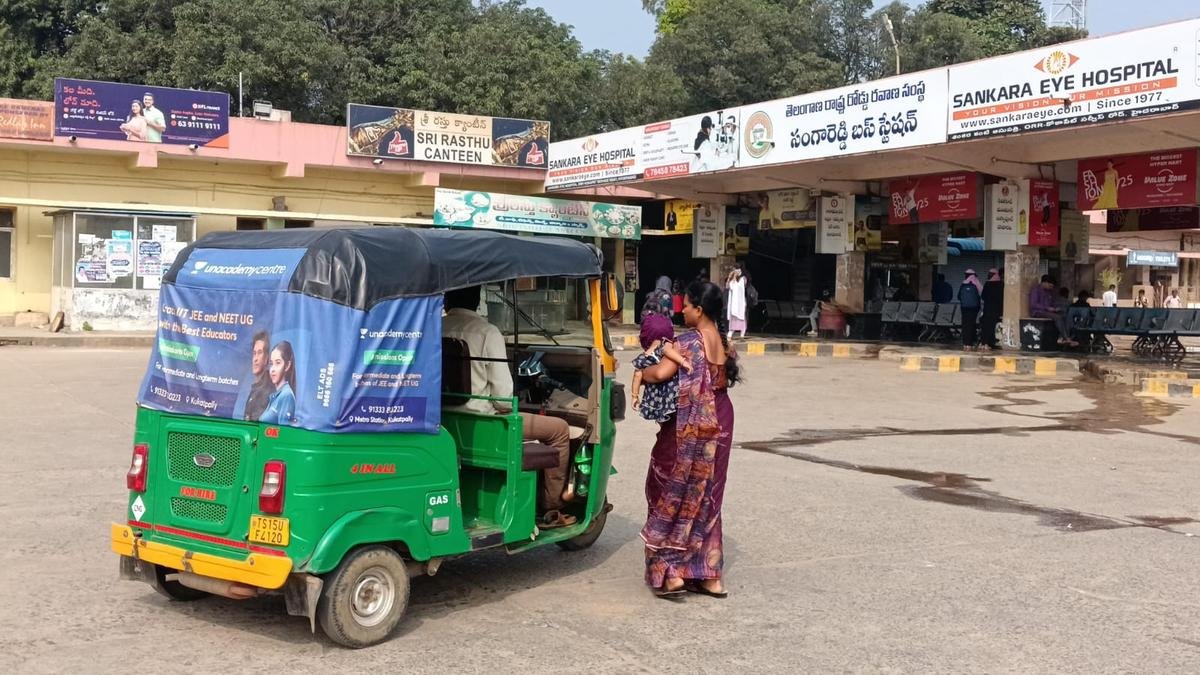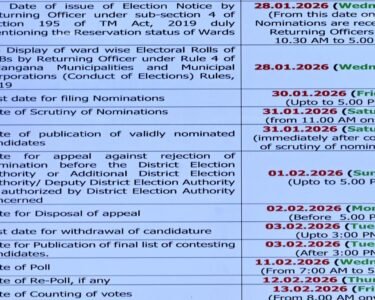On October 18, 2025, Telangana witnessed a statewide bandh called by the Backward Classes (BC) Joint Action Committee (JAC) to protest the Telangana High Court’s interim stay on the government’s decision to increase BC reservation in local body elections from 25% to 42%. The bandh, supported by various political parties including the Congress, BRS, BJP, and CPI, led to significant disruptions across the state, particularly in public transport services. The Times of India
Background of the Protest
The Telangana government had issued Government Order No. 9, aiming to enhance BC reservation to 42% in local body elections. However, on October 9, the High Court imposed an interim stay on this order, citing that the total reservation, when combined with existing quotas for Scheduled Castes (SCs) and Scheduled Tribes (STs), would exceed the Supreme Court’s mandated 50% ceiling. This judicial intervention sparked widespread protests among BC communities, who viewed the decision as a setback to their rightful representation. www.ndtv.com
Impact on Transport Services
The bandh led to a complete shutdown of public transport services across Telangana. In Hyderabad, Telangana State Road Transport Corporation (TSRTC) buses were halted at various depots, including Uppal, Chengicherla, and Kukatpally, with nearly 125 buses being stopped. Protesters staged sit-ins and blocked buses, causing severe inconvenience to commuters. Reports indicated that private cabs took advantage of the situation by charging double fares, further exacerbating the plight of the public. Deccan Chronicle+1
Participation of Political Leaders
The bandh received support from a broad spectrum of political parties. Leaders from the ruling Congress, opposition parties like BRS and BJP, and other organizations actively participated in the protests. Notably, BRS working president KT Rama Rao criticized the Congress-led state government for its alleged lack of action on BC welfare, despite promises like a ₹1 lakh crore BC budget and a dedicated sub-plan. He emphasized that the 42% quota promised by Congress should be extended beyond local body elections to education, employment, and other sectors for broader impact. The Times of India
Educational Institutions and Businesses
Educational institutions, including schools and colleges, remained closed in support of the bandh. The Telangana Recognised School Managements Association (TRSMA) had announced a holiday for all schools, and BC professors and employees from Osmania University planned gatherings at the OU Arts College. Most business establishments also observed the bandh, with shops and markets remaining shuttered throughout the day. The Times of India
Public Sentiment and Response
The public response to the bandh was mixed. While many BC community members expressed solidarity with the cause, some commuters and daily wage workers faced hardships due to the disruption of transport services. The state police, under DGP B Shivadhar Reddy, were on high alert to ensure peaceful conduct and public order, particularly in major cities. Despite these efforts, instances of vandalism and forced shutdowns were reported in several parts of Hyderabad. Deccan Chronicle
Legal and Political Implications
The High Court’s stay on the BC reservation order has significant legal and political implications. The Telangana government is expected to challenge the court’s decision, seeking to uphold the enhanced reservation. Political leaders have called for a review of the judgment, arguing that the BC community’s demand for increased representation is justified and should be legally recognized. The Times of India
Conclusion
The October 18 bandh in Telangana underscored the deep-seated concerns of the BC community regarding their representation in local governance. While the protest led to significant disruptions, it also highlighted the need for a balanced approach that respects constitutional limits while addressing the legitimate demands of marginalized communities. As the legal battle continues, the state government and political leaders will need to navigate these complex issues to ensure social justice and equitable representation for all sections of society.







